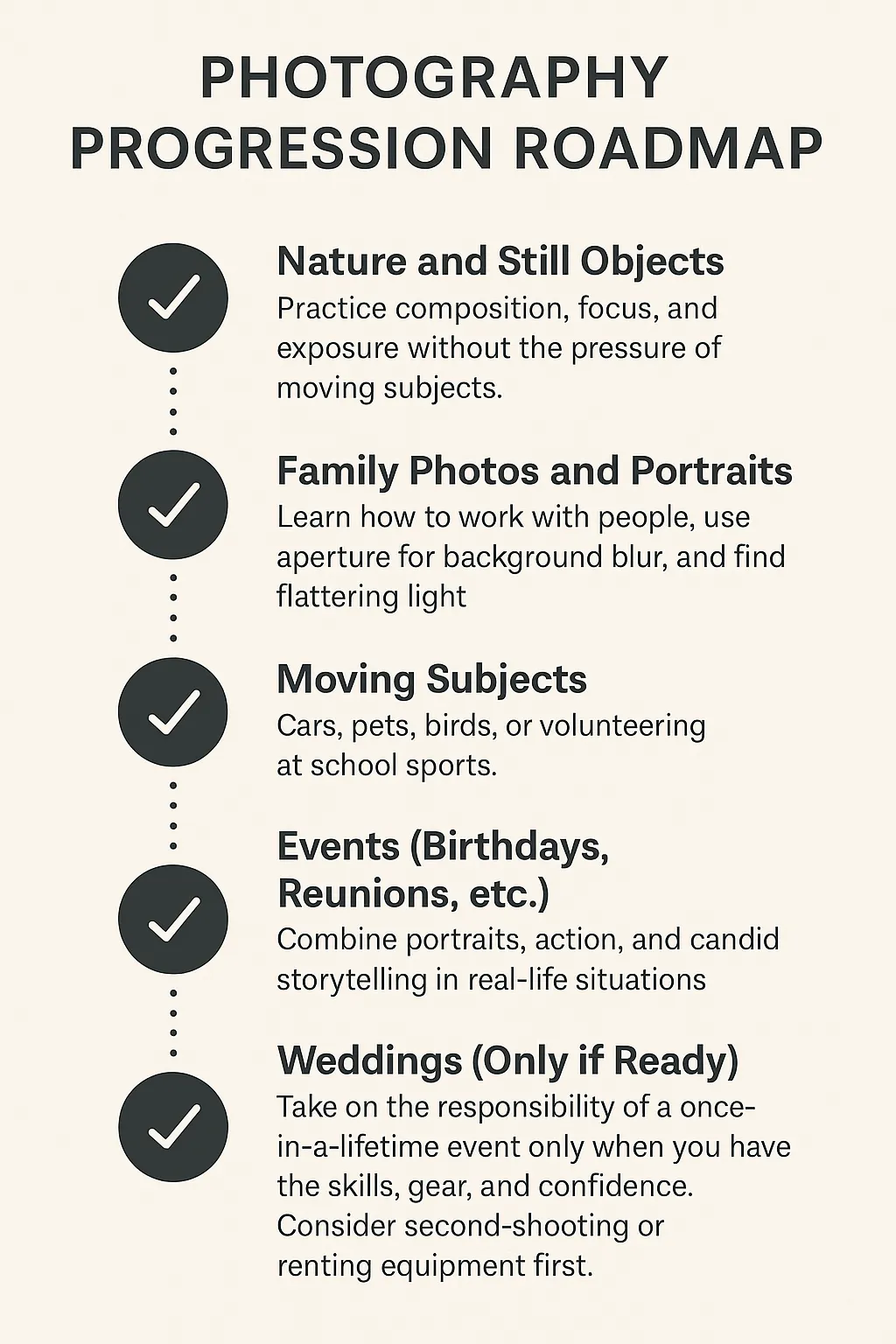What Photo shoots to Start Shooting First - Business
A Beginner’s Guide to What Photos to Start Shooting First
When you’re just getting into photography, it can feel overwhelming to know where to start. Should you go straight into portraits? Sports? Weddings? The truth is, photography skills build best when you start simple and work your way up to more challenging subjects.
Here’s a step-by-step path that helps you gain confidence, practice important skills, and avoid mistakes that can cost you time, money, and stress.
1. Start with Nature and Still Objects
The best place to begin is with subjects that don’t move. Try photographing flowers, landscapes, trees, or everyday objects around your home.
- You can take your time with composition and settings.
- It’s easier to experiment without worrying about missing the shot.
- Mistakes are low-stress and part of learning.
This builds your foundation in exposure, focus, and framing.
2. Move on to Family Photos and Portraits
Once you’re comfortable with still subjects, try photographing family and friends. Portraits teach you how to:
- Work with people.
- Control background blur with aperture.
- Pay attention to light on someone’s face.
Family is forgiving, which makes it the perfect way to practice before working with clients.
3. Practice with Harder Subjects
After portraits, challenge yourself with subjects that move quickly, like:
- Cars on the street.
- Birds or pets.
- Local school sports (volunteer a couple of times to practice).
This teaches timing, tracking, and using fast shutter speeds. But remember: your time is valuable. Don’t keep shooting events for free, start charging. People will respect you more as a professional if you value your own work.
4. Try Events Like Birthdays and Family Reunions
Events are the next step up. They combine portraits, action, and storytelling all in one. These experiences will help you learn how to:
- Capture moments as they happen.
- Work in unpredictable lighting.
- Manage multiple people and situations at once.
These are great stepping stones toward more serious photography work.
Ad slotAd slot available. Use contact button for details
5. Weddings: Only If You’re Ready
Weddings are one of the most important events a photographer can cover, and they should not be taken lightly.
- Experience matters. Weddings move fast, and you only get one chance at each moment.
- Gear matters. You need backup equipment in case something fails:
- A second camera body.
- Spare lenses.
- Extra SD cards and batteries.
- Professional quality matters. This is not the place for an entry-level camera like a Canon T6 with a kit lens. Clients deserve reliable, professional-grade gear.
If you’re not fully prepared, consider renting the right equipment or offering to be a second shooter alongside a professional. It’s far better to be honest than to risk ruining someone’s special day.
Final Thoughts
You may hear the phrase, “It’s the photographer, not the gear.” While this is true for learning and most types of photography, weddings are different. Here, both experience and gear matter.
Start small, build up your skills step by step, and only take on bigger jobs when you’re confident and properly equipped. By following this path, you’ll grow steadily as a photographer and earn the respect of clients as a true professional.
